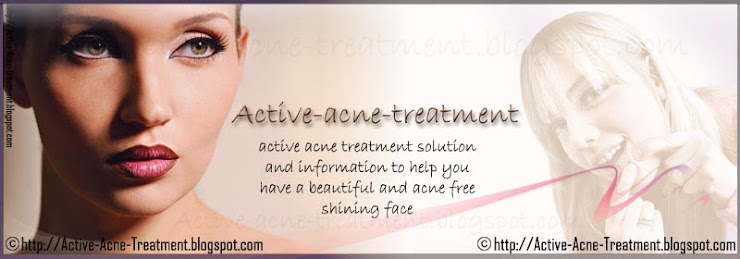Treatments Acne Can't Fight
When you have a breakout of acne all you really want are some good treatments. Acne can be frustrating and difficult to clear up. The best treatments sometimes can fall short and leave you searching for something even better that will work. You can finally rest easy knowing that you have found treatments acne can not fight.
The Bottom Line
To fight acne you have to know what causes acne. Acne is basically an infection of the skin. It is caused when the pores get blocked and bacteria are allowed to grow. The pore then fills with pus and the result is acne on the surface of the skin.
Keeping the face clean is the best way to combat acne, but sometimes even the cleanest face can still develop acne. That is because acne can also be directly related to excess oil production of the pores due to hormonal changes. When the skin produces too much oil even the best skin care regimen can fail. This is when treatments acne can not stand up to come in.
Treatment Methods
The first thing to remember is that even when you have already developed acne, keeping your skin clean is important. Keep up your skin care routine daily.
Topical medications are the most common types of treatments. Acne is treated at the surface with these methods. The downfall of this type of treatment is that it often dries out the skin and produces a less than favorable look. They should be used as spot treatments and excess use is to be avoided. You can do such treatments without consulting a dermatologist, however, for better solutions you might want to turn to him for advice and solutions. Sometimes acne is treated with topical medicines and oral medications. This combination is usually handled by a dermatologist and is better for moderate to severe cases.
Another thing a dermatologist may do is offer acne surgery. This is usually reserved for the severe cases. It involves removal of blackheads and whiteheads with an extractor. The results are quite amazing. A dermatologist may also be willing to provide intralesional corticosteroid therapy. This is used for one or two cysts. The cysts are injected with a cortisone solution and they will quickly disappear.
Dermatologist treatments are going to be the best solution to an acne problem. It can be hard to handle the situation yourself with over the counter treatments. Acne can be difficult to clear up on your own without having side effects from OTC medications that just make things worse. For treatments acne can not fight you should see your dermatologist.
When you have a breakout of acne all you really want are some good treatments. Acne can be frustrating and difficult to clear up. The best treatments sometimes can fall short and leave you searching for something even better that will work. You can finally rest easy knowing that you have found treatments acne can not fight.
The Bottom Line
To fight acne you have to know what causes acne. Acne is basically an infection of the skin. It is caused when the pores get blocked and bacteria are allowed to grow. The pore then fills with pus and the result is acne on the surface of the skin.
Keeping the face clean is the best way to combat acne, but sometimes even the cleanest face can still develop acne. That is because acne can also be directly related to excess oil production of the pores due to hormonal changes. When the skin produces too much oil even the best skin care regimen can fail. This is when treatments acne can not stand up to come in.
Treatment Methods
The first thing to remember is that even when you have already developed acne, keeping your skin clean is important. Keep up your skin care routine daily.
Topical medications are the most common types of treatments. Acne is treated at the surface with these methods. The downfall of this type of treatment is that it often dries out the skin and produces a less than favorable look. They should be used as spot treatments and excess use is to be avoided. You can do such treatments without consulting a dermatologist, however, for better solutions you might want to turn to him for advice and solutions. Sometimes acne is treated with topical medicines and oral medications. This combination is usually handled by a dermatologist and is better for moderate to severe cases.
Another thing a dermatologist may do is offer acne surgery. This is usually reserved for the severe cases. It involves removal of blackheads and whiteheads with an extractor. The results are quite amazing. A dermatologist may also be willing to provide intralesional corticosteroid therapy. This is used for one or two cysts. The cysts are injected with a cortisone solution and they will quickly disappear.
Dermatologist treatments are going to be the best solution to an acne problem. It can be hard to handle the situation yourself with over the counter treatments. Acne can be difficult to clear up on your own without having side effects from OTC medications that just make things worse. For treatments acne can not fight you should see your dermatologist.





